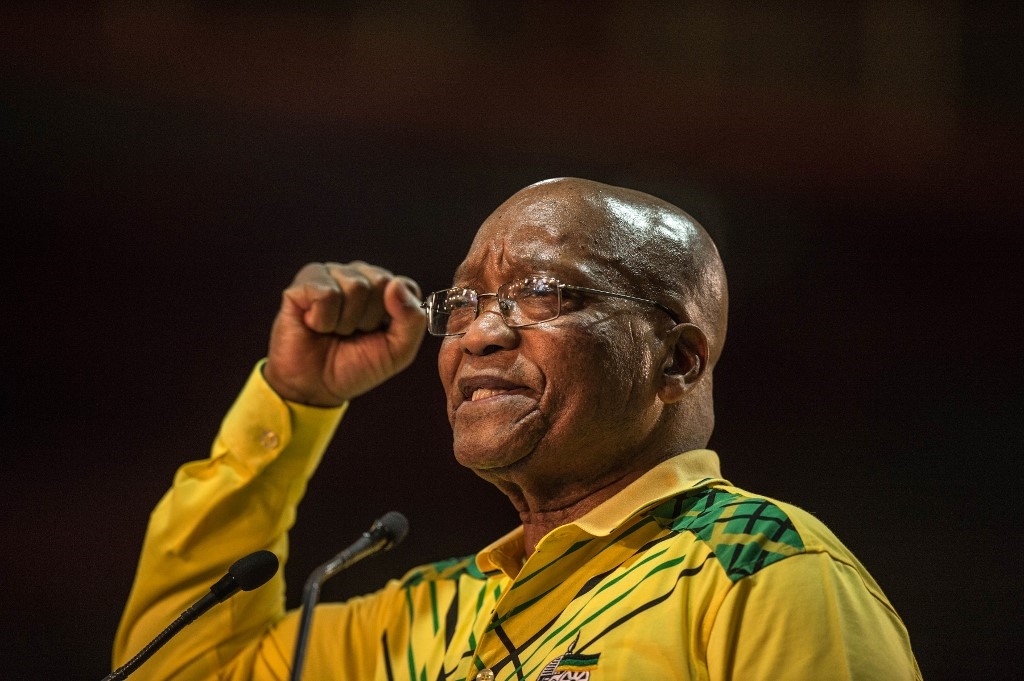


Former president Jacob Zuma.
- Former president Jacob Zuma says South Africa’s youth needs to debate their past, present and future more.
- He has called on young people to assess whether the democracy achieved is sufficient or if more work needs to be done.
- Zuma says radical economic transformation has to happen to rid South Africa of its current class struggle.
Former president Jacob Zuma has urged the country’s youth to spend June holding robust discussions over South Africa’s future.
In a virtual lecture marking Youth Day, the former leader said the position of the African child remained disadvantaged today, as it did during the apartheid era, albeit to a lesser extent.
This days after a teaser was posted on a Twitter account allegedly belonging to his daughter, Duduzile Zuma.
Radical economic transformation, democracy, equality before the law and education were some of the issues addressed by Zuma.
“There is no way you can have a country where the huge resources of that country, which are national resources, are funnelled to the few when the majority does not having anything.”
Giving himself credit for introducing the idea of radical economic transformation into the country’s narrative, he added this was an issue that needed serious discussion.
Zuma posing numerous questions throughout his address, said the country needed to reflect on the freedom it had and discuss whether it was enough or more work towards an ideal still needed to take place.
READ | Ramaphosa tells youth to rebuild the economy after Covid-19
“Our freedom cannot be static, it must develop, it must get better and better and better … but we need to know by declaring political freedom is not enough, where is economic freedom.”
He said while young people needed to engage on the history and future of the country, the elderly should participate with the aim of giving guidance and clarity on the country’s struggle history and attainment of democracy.
Journey
Reflecting on the journey towards the Freedom Charter, Zuma warned against leaders who took people for granted, saying during that process, volunteers went door to door to understand the vision of ordinary people, across the colour spectrum, had for South Africa.
He also shared his thoughts about informal settlements, which are characteristic of the country’s big cities, saying this was not part of the vision set out for the country in 1955.
“The Freedom Charter I spoke about, talks about the nationalisation of monopoly capital, the nationalisation of mines, banks … those people were not mistaken, they knew what they were talking about, that would be the material to shape the South Africa that the Freedom Charter talks about,” said Zuma.
READ | VBS arrests part of an ‘ongoing investigation’, says Hawks boss
While the embattled former leader, whose corruption trial is set to resume in the Pietermaritzburg High Court next week, did not mention any names or his looming court battles, he slipped in the charter’s views of quality before the law for a brief period.
Some of Zuma’s allies have maintained over the years attempts to bring him before the courts over his role in the arms deal was just an attack from his enemies, with some threatening mass action after the court issued a warrant of arrest against him when he failed to appear for his trial in February.
“Equality before the law, nobody must feel because it is hated by others, the law can be twisted to make others feel like outcasts in their own country.
“Equality before the law, we are all the same.”
Zuma said the class struggle became the new national fight that set in following the attainment of freedom.
“If you are black, you could be anywhere else where you were not allowed before but now need resources.”
He added South Africa should learn from China on how it sought to eradicate informal settlements, warning the failure to deal with this would mean sitting with them for many years to come.
“On youth month, I would want to see very robust debate by the youth, by the scholars, by everybody … if we do so, this country would move forward,” said Zuma.

